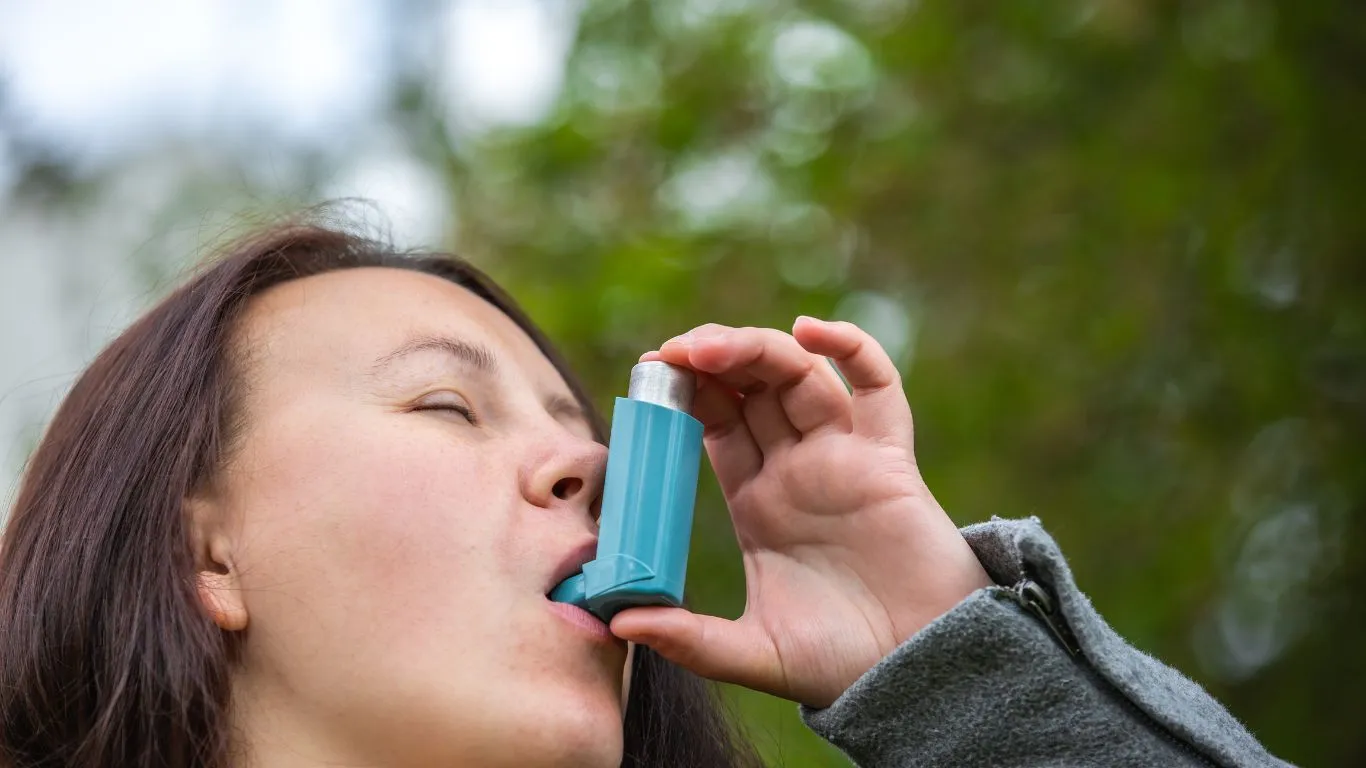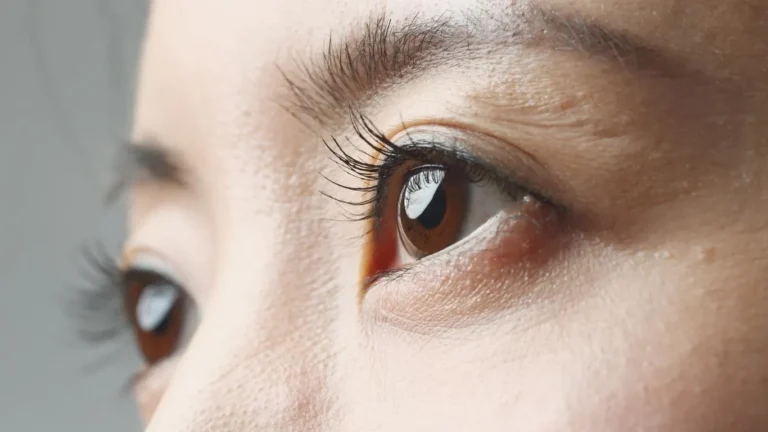Can Asthma Cause Tingling in Hands and Feet? Causes & Solutions
Can asthma cause tingling in hands and feet? It’s a question I’ve heard more than once in my years as a pulmonary nurse practitioner. When patients come in describing that weird, prickly sensation—almost like tiny pins poking at their fingers or toes—it’s natural to wonder if their asthma is somehow to blame. From my clinical experience, this isn’t a totally unusual concern, and it’s one worth exploring in depth because the answer isn’t always straightforward.
Asthma is primarily a condition that affects your lungs and breathing, but the body is an intricate system where symptoms can sometimes show up in unexpected places. That tingling sensation, medically known as paresthesia, can be caused by a variety of things, some related to asthma and some not. Before jumping to conclusions, it’s essential to understand what might be triggering these sensations and when it’s time to seek professional advice.
Why Might Asthma Cause Tingling in Hands and Feet?

When patients ask, “Can asthma cause tingling in hands and feet?” I like to break down the possible links clearly. The short answer is: it can, but usually indirectly.
1. Hypoxia and Reduced Oxygen Supply
Asthma attacks narrow the airways, making it harder for oxygen to reach the bloodstream efficiently. When oxygen levels drop—a condition called hypoxia—your nerves can react oddly. That’s because nerves are super sensitive to oxygen supply. In low oxygen states, you might feel tingling or numbness in extremities like your fingers and toes.
From my experience working with patients during asthma exacerbations, this is a common explanation. They often report feeling lightheaded, dizzy, and sometimes that prickly feeling in their hands or feet. It’s the body’s way of signaling it’s struggling to keep oxygen circulating properly.
2. Hyperventilation and Its Effects
Another factor often overlooked is hyperventilation, which can happen during an asthma flare-up. When you breathe rapidly and shallowly, it changes the balance of oxygen and carbon dioxide in your blood. This imbalance can cause temporary tingling sensations, muscle spasms, or even feelings of anxiety.
As a pulmonary nurse practitioner, I’ve seen patients in the ER with panic-like symptoms caused by hyperventilation during asthma attacks. They’re not only dealing with their lungs but also experiencing nerve sensations that can be confusing and alarming.
3. Medication Side Effects
Sometimes, the treatments we use to manage asthma can contribute to tingling sensations. For example, certain asthma medications like beta-agonists (think albuterol inhalers) can cause side effects including nervousness, shaking, and tingling in extremities. While this isn’t harmful in most cases, it’s important to recognize it as a possible culprit so patients aren’t unnecessarily worried.
Other Possible Causes of Tingling You Should Know About

Since tingling in the hands and feet can have a variety of causes, not all related to asthma, I always remind my patients to consider these possibilities too:
- Nerve compression or damage: Conditions like carpal tunnel syndrome or peripheral neuropathy can cause similar sensations.
- Vitamin deficiencies: Lack of B12 or other vitamins can affect nerve health.
- Diabetes: One of the most common causes of tingling due to nerve damage from high blood sugar.
- Anxiety or panic attacks: These can cause hyperventilation and subsequent tingling.
- Circulation problems: Poor blood flow can lead to numbness or tingling in the extremities.
It’s important to get a proper diagnosis, especially if the tingling is persistent or worsening. As someone who’s cared for many patients with complex medical histories, I always stress that a thorough clinical evaluation is the key to pinpointing the root cause.
When Should You Be Concerned About Tingling in Hands and Feet?

Not all tingling sensations require emergency care, but there are certain red flags that should prompt you to seek immediate medical attention. Based on my clinical practice, these include:
- Tingling accompanied by weakness or loss of movement.
- Sudden, severe tingling with chest pain or shortness of breath that worsens.
- Persistent tingling lasting more than a few days without improvement.
- Signs of infection or fever alongside neurological symptoms.
In these scenarios, it’s crucial to see a healthcare provider immediately. Sometimes, what seems like a mild symptom can indicate more serious issues that need prompt treatment.
How to Manage Tingling Sensations When You Have Asthma

Now, if you’ve been wondering “Can asthma cause tingling in hands and feet?” and you’re actually experiencing this, you’re probably also asking, “What can I do about it?” From my years as a pulmonary nurse practitioner, I can tell you that managing these sensations involves a combination of understanding your asthma control and addressing any contributing factors.
1. Keep Your Asthma Well-Controlled
First things first: making sure your asthma is as well-controlled as possible is key. Uncontrolled asthma often means more frequent flare-ups, which can lead to the hypoxia and hyperventilation we talked about earlier—both triggers for that annoying tingling sensation.
I always encourage my patients to:
- Take their prescribed inhalers regularly, even when they’re feeling fine.
- Monitor their symptoms closely using a peak flow meter or symptom diary.
- Avoid known triggers such as allergens, smoke, or extreme weather changes.
- Attend regular follow-ups with their healthcare provider to adjust treatment as needed.
When asthma is managed well, those weird nerve sensations tend to decrease because the body is getting the oxygen it needs without undue stress.
2. Learn Breathing Techniques to Reduce Hyperventilation
Since rapid, shallow breathing can cause tingling, learning how to control your breathing during an asthma flare-up can make a big difference. I often teach patients simple techniques like pursed-lip breathing or diaphragmatic breathing. These help slow your breath down, restore carbon dioxide balance, and calm the nervous system.
Here’s a quick practice you can try anywhere:
- Inhale slowly through your nose for a count of 4.
- Purse your lips as if you’re about to whistle.
- Exhale gently through your lips for a count of 6.
- Repeat for several minutes until you feel more relaxed.
It might feel a bit awkward at first, but with practice, these techniques become second nature and can reduce both asthma symptoms and the associated tingling.
When to Consider Other Causes and Seek Further Testing

While asthma can sometimes play a role in tingling sensations, if you’re still noticing persistent numbness or prickliness despite good asthma control, it might be time to look beyond your lungs.
1. Talk About Your Full Medical History
In my practice, I’ve found that digging into a patient’s overall health often reveals other underlying issues. For instance, diabetes, thyroid problems, or vitamin deficiencies can all cause nerve symptoms. Don’t hesitate to share all your symptoms with your provider, even if they seem unrelated to your asthma.
2. Get a Comprehensive Neurological Exam
If your tingling doesn’t match typical asthma-related patterns, your doctor might recommend nerve conduction studies or blood tests to check for things like:
- Peripheral neuropathy
- Vitamin B12 deficiency
- Autoimmune conditions such as multiple sclerosis
Remember, sometimes tingling can signal early nerve damage that’s easier to manage when caught early.
3. Medication Review
Some asthma medications can cause side effects mimicking nerve issues. If your symptoms began after starting a new medication, bring this up with your healthcare provider. They may adjust dosages or try alternatives to reduce side effects.
Tips from a Pulmonary Nurse Practitioner: Personal Insights

Over the years, I’ve noticed that the best outcomes come from patients who take an active role in their health. Here are a few things I often share with people dealing with asthma-related tingling sensations:
- Stay curious but patient: Sometimes the answer isn’t immediate, and it takes time to figure out what’s really going on.
- Track your symptoms: Keep a simple log of when tingling happens, what you were doing, and any asthma symptoms. This can help your provider identify patterns.
- Practice stress management: Anxiety can worsen asthma and cause tingling itself. Mindfulness, gentle exercise, or talking to a therapist can help.
- Don’t ignore new or worsening symptoms: Your body often gives early warning signs. If tingling spreads, worsens, or is accompanied by weakness, seek care promptly.
From my bedside experience, taking a holistic approach—addressing asthma, lifestyle, and overall health—helps patients regain control and peace of mind.
Long-Term Strategies to Prevent Tingling and Improve Overall Well-Being

By this point, you probably have a clearer picture of how asthma might be connected to tingling in your hands and feet—and when it might be something else entirely. But beyond managing flare-ups and identifying triggers, there are some long-term lifestyle habits that can make a big difference in reducing those uncomfortable sensations and improving your overall quality of life.
1. Prioritize Consistent Asthma Management
Consistency is key. It’s not just about taking medication during an attack but maintaining daily control. In my years as a pulmonary nurse practitioner, I’ve seen patients feel better physically and mentally when they stick to their asthma action plans. That means:
- Using controller inhalers regularly, even when you feel fine.
- Monitoring symptoms and lung function with a peak flow meter.
- Working closely with your healthcare team to adjust treatment as your needs change.
Well-managed asthma reduces the chances of low oxygen episodes and hyperventilation that can trigger tingling sensations.
2. Nutrition and Supplements for Nerve Health
Good nutrition supports nerve function and overall health. I often encourage my patients to eat a balanced diet rich in:
- Leafy greens and colorful vegetables for antioxidants.
- Whole grains and lean proteins to support energy and repair.
- Foods high in vitamin B12 and magnesium, which are vital for nerve health.
If you’re concerned about deficiencies, blood tests can check your levels, and your doctor might recommend supplements. Remember, though, never start supplements without discussing with your healthcare provider—more isn’t always better.
3. Stay Active and Manage Stress
Physical activity helps improve circulation, strengthen respiratory muscles, and reduce anxiety—all factors that can ease tingling symptoms. Low-impact exercises like walking, swimming, or yoga are usually safe for people with asthma and can boost your overall well-being.
Managing stress is equally important. Stress and anxiety can worsen both asthma and neurological symptoms. I’ve seen firsthand how mindfulness techniques, breathing exercises, and even counseling can make a huge difference in patients’ symptom control and quality of life.
When to Follow Up and What to Expect

Regular follow-up with your healthcare provider is crucial. If tingling sensations continue or worsen, don’t hesitate to mention it at your next visit. Your provider might want to:
- Review your asthma control and possibly adjust medications.
- Order additional tests such as blood work, nerve conduction studies, or imaging.
- Refer you to a neurologist or other specialists if needed.
Remember, the goal is to get to the root cause so you can feel your best—not just mask symptoms.
Final Thoughts from a Pulmonary Nurse Practitioner
To wrap things up (well, almost!), I want to emphasize that while tingling in your hands and feet can be unsettling, it’s often manageable and sometimes preventable when you understand the connection with asthma and other health factors.
Throughout my clinical experience, I’ve seen that patients who stay informed, engaged, and proactive about their health tend to navigate these symptoms much better. So, if you’re asking, “Can asthma cause tingling in hands and feet?”—the answer is yes, but it’s often part of a bigger picture. Keep track of your symptoms, communicate openly with your healthcare team, and don’t be afraid to ask questions or seek second opinions.
Your body is telling a story; listen carefully, and partner with your providers to write the next chapters with confidence.
References
Disclaimer
This article is intended for informational purposes only and does not replace professional medical advice, diagnosis, or treatment. If you experience persistent or worsening tingling in your hands or feet, or any other concerning symptoms, please consult your healthcare provider promptly.

Bianca Nala is a compassionate Nurse Practitioner with a strong background in primary and respiratory care. As a health writer for Healthusias.com, she combines her clinical expertise with a talent for clear, relatable storytelling to help readers better understand their health. Bianca focuses on topics like asthma, COPD, chronic cough, and overall lung health, aiming to simplify complex medical topics without losing accuracy. Whether she’s treating patients or writing articles, Bianca is driven by a single goal: making quality healthcare knowledge accessible to everyone.







